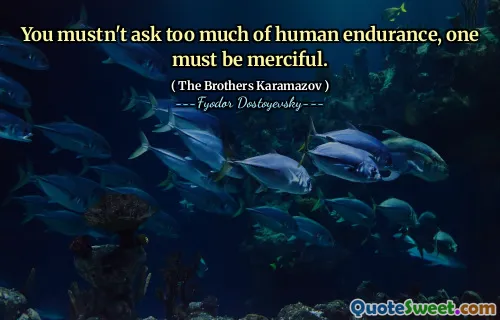
Being in love doesn't mean loving. You may be in love with a woman and yet hate her.
Fyodor Dostoyevsky’s statement profoundly captures the dichotomy between the often idealized state of "being in love" and the deeper, more complex reality of love itself. To be "in love" can be an intense but sometimes superficial emotional experience, often centered around infatuation or desire. It is a feeling laden with excitement, passion, and longing but may lack the enduring qualities of care, respect, and understanding that constitute true love.
Dostoyevsky points out a paradox: you can be emotionally enamored with someone—consumed by the idealized image of a woman—yet simultaneously feel negativity, even hatred, toward aspects of her or the relationship. This suggests that being "in love" is not enough to cultivate genuine love. True love, on the other hand, involves acceptance beyond superficial emotions, an embrace of the other person's entirety, including their flaws and imperfections.
The quote compels us to reflect on how easily passion can be mistaken for genuine affection and commitment. It also illustrates the internal conflicts that can arise in our relationships, where our desires clash with deeper emotional or psychological responses. Through this lens, Dostoyevsky invites readers to understand love as an active and deliberate process—not simply a passive feeling—one that demands patience, forgiveness, and meaning beyond fleeting fascination.
Ultimately, this insight from "The Brothers Karamazov" challenges us to reconsider how we approach love and relationships. It warns against conflating intense emotions with profound connection and encourages a more nuanced, thoughtful engagement with the concept and practice of love.











